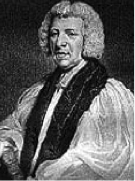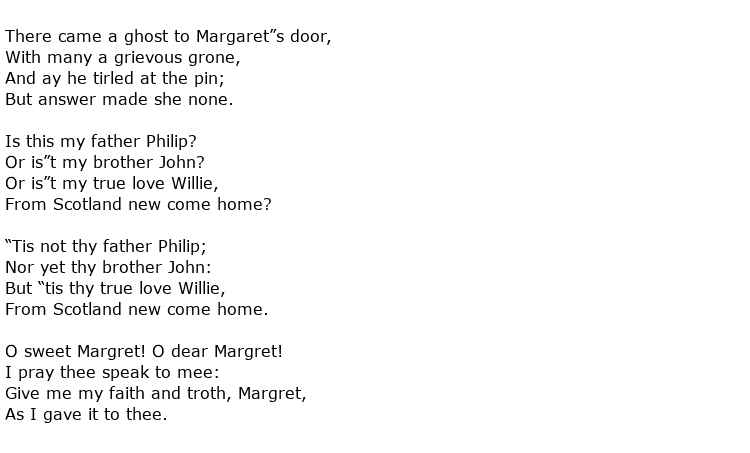 Thomas Percy was a clergyman and poet who made a significant contribution to the great Romantic movement when he published Reliques of Ancient English Poetry in 1765. This book has been generally recognised as being the first of many great collections of ballads and inspired countless other poets to follow Percy in this style of writing.
Thomas Percy was a clergyman and poet who made a significant contribution to the great Romantic movement when he published Reliques of Ancient English Poetry in 1765. This book has been generally recognised as being the first of many great collections of ballads and inspired countless other poets to follow Percy in this style of writing.
He was born on the 13th April 1729 in the Shropshire town of Bridgnorth. His father was a grocer and farmer who was able to provide his son with a decent education. Thomas attended two grammar schools – Bridgnorth Grammar School first and then Adams’ Grammar School in Newport, Shropshire. He then went up to Christ Church College, Oxford, gaining a BA in 1750 and an MA three years later. He had ambitions to make a career in the church and he filled vicar and rector posts in Northamptonshire during the next 30 years.
Percy’s writing ability was first noticed when, in 1761, he published a revised version of a Chinese novel called Hao Kiou Choaan, which translates to The Pleasing History. No one had ever translated a Chinese novel into English before. He continued in a similar vein, translating more Chinese works and also Icelandic and French pieces. One other project was an insight into domestic life in England during the late 18th century and was published in 1770 with the remarkable title of

A few years earlier though he had begun the task of collecting old tales and legends pertaining to the Northumberland area of northern England. Many were in the form of ballads and he weaved these into his famous publication Reliques of Ancient English Poetry. He had been encouraged in this major undertaking by the likes of Samuel Johnson and James Boswell, amongst others, and he certainly unearthed a great deal of material from that area and the Scottish border region.
His life as a cleric was also progressing and, in 1769, he was appointed chaplain to King George III. During that same year he gained a doctorate of divinity from Emmanuel College, Cambridge. He was elevated to Dean of Carlisle Cathedral in 1788. During the period 1782-1811 Dr Percy was Bishop of Dromore in County Down, Northern Ireland. He held this post until his death.
As part of his ongoing project to document the history and folklore of Northumberland, particularly the area around Alnwick, Percy composed a ballad called The Hermit of Warkworth, which centred on the ruined Warkworth Castle. To his dismay, the man who he considered a friend – Samuel Johnson – wrote a number of parodies mocking this composition, and Percy”s “Churchyard Poet” style of writing. Johnson responded to a popular description of the “beautiful simplicity” of the ballad form by pointing out that

Although Percy was angry at first he soon came to realise that Johnson was only satirising this form of writing, rather than attacking the poem itself. He certainly favoured this style and not only wrote his own ballad poems but took on the task of improving and editing many others that had been written long before him. Here is an example of his work, the opening four verses to a poem called Sweet William’s Ghost:

It should be noted that many other illustrious writers followed in Percy’s footsteps as writers in the ballad style, examples being Wordsworth, Coleridge, Pepys and Burns. He lived out his final years in Ireland where he had his wife buried at Dromore Cathedral in 1806. Five years later he was laid to rest alongside her.
Dr Thomas Percy died on the 30th September 1811, aged 82.

